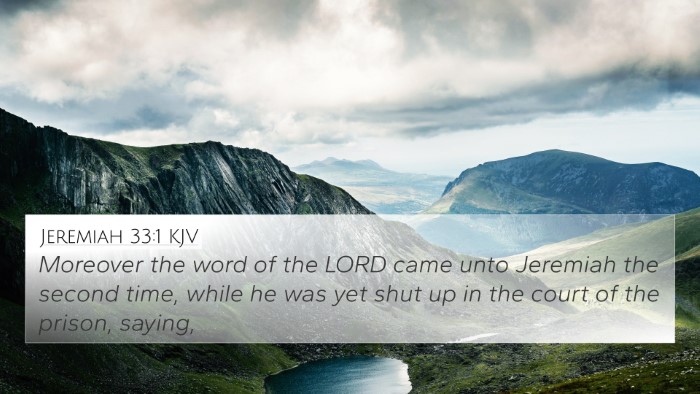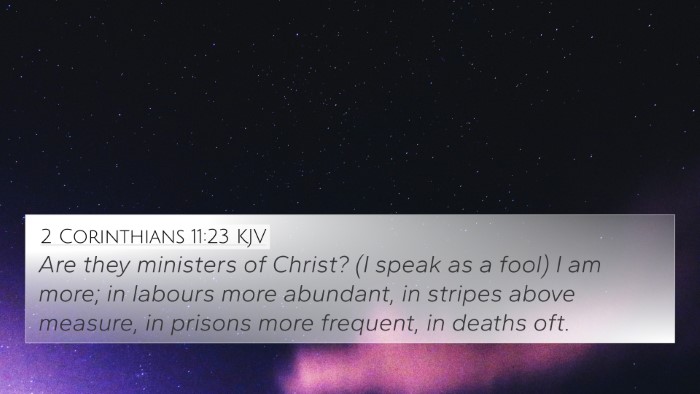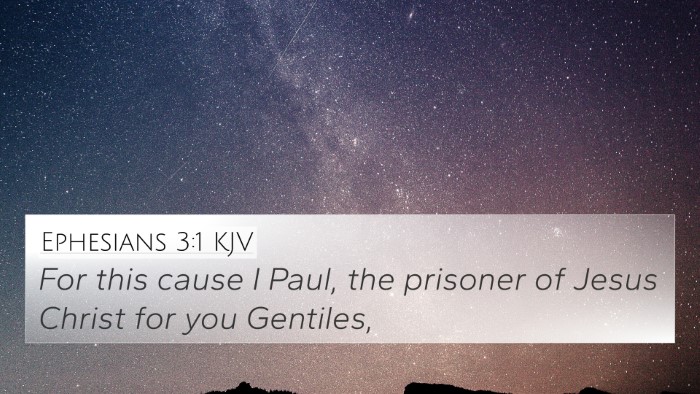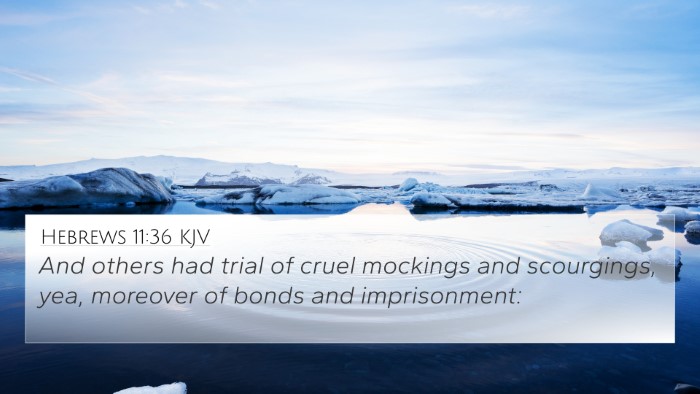Understanding Jeremiah 36:5
Jeremiah 36:5 states: "And Jeremiah commanded Baruch, saying, I am shut up; I cannot go into the house of the LORD." This verse captures a significant moment in the ministry of the prophet Jeremiah, reflecting his distress and the limitations imposed upon him during a tumultuous period.
Contextual Analysis
In this chapter, Jeremiah faces opposition and constraints from those around him. This command to Baruch highlights not just Jeremiah's situation but also the nature of his prophetic ministry during times of persecution and impending judgment.
Commentary Insights
-
Matthew Henry remarks that Jeremiah's confinement illustrates the trials faced by true prophets of God and the importance of steadfastness in the face of adversity. It shows how the mission to deliver God’s word often comes at great personal cost.
-
Albert Barnes notes that this moment signifies Jeremiah’s concern for the message of God, which he could not deliver personally due to his circumstances. It emphasizes the urgency of proclaiming God’s message, regardless of one's personal limitations.
-
Adam Clarke points out that Jeremiah's inability to enter the house of the LORD may symbolize the difficulties that can separate us from worship and divine communion, especially during times of spiritual conflict and societal upheaval.
Thematic Connections
The themes within Jeremiah 36:5 resonate deeply with other passages throughout the Bible. This verse can be seen as part of a larger narrative about obedience and the struggle for truth, portraying how God's messages often come through human instruments despite obstacles.
Bible Verse Cross-References
- Jeremiah 1:6-7: "Then said I, Ah, Lord GOD! behold, I cannot speak: for I am a child." - This reflects Jeremiah's initial hesitance, paralleling his later confinement.
- Ezekiel 3:26: "And I will make thy tongue cleave to the roof of thy mouth, that thou shalt be dumb, and shalt not be to them a reprover: for they are a rebellious house." - This demonstrates the silencing of prophets in rebellious periods.
- Acts 4:20: "For we cannot but speak the things which we have seen and heard." - This encapsulates the urgency of delivering God's messages, similar to Jeremiah's calling.
- 1 Peter 4:12-13: "Beloved, think it not strange concerning the fiery trial which is to try you..." - Reflecting on trials faced by the faithful.
- Hebrews 11:36-37: "And others had trial of cruel mockings and scourgings..." - A reminder of the suffering experienced by prophets throughout history.
- Matthew 10:16: "Behold, I send you forth as sheep in the midst of wolves..." - Illustrating the danger faced by those delivering the Gospel.
- James 5:10: “Take, my brethren, the prophets, who have spoken in the name of the Lord, for an example of suffering, affliction...” - Recognizing the prophetic tradition of suffering and perseverance.
In-Depth Interpretations
The theological implications of Jeremiah 36:5 can be interpreted through various lenses. Jeremiah's confinement not only impacts him personally but serves as a metaphor for the broader spiritual state of Israel, where access to divine truth becomes restricted amid societal sin and rebellion.
Inter-Biblical Dialogue
This verse and its context align with the overarching narrative of struggle within the Scriptures. The linking of prophetic voices from the Old Testament through the messianic fulfillments in the New Testament generates a rich tapestry of meaning that a seeker can explore.
Further Biblical Connections
- John 15:20: "Remember the word that I said unto you, The servant is not greater than his lord..." - Emphasizing the inevitability of suffering for the faithful.
- Romans 1:16: "For I am not ashamed of the gospel of Christ: for it is the power of God unto salvation..." - Speaking to the necessity of boldly sharing God’s messages despite challenges.
- 2 Timothy 1:8: "Be not thou therefore ashamed of the testimony of our Lord..." - Directly aligning with the call for boldness amidst persecution.
Tools for Bible Cross-Referencing
For those looking to deepen their understanding of Jeremiah 36:5 and its connections, various tools are available for effective study:
- Bible Concordance: Useful for locating key terms and themes that link different scriptures.
- Bible Cross-Reference Guide: Offers structured insights into related verses and themes.
- Cross-Reference Bible Study: A methodical approach to explore thematic and textual connections.
- Bible Reference Resources: Comprehensive materials providing context and explanations for biblical passages.
Conclusion
Jeremiah 36:5 serves as a powerful reminder of the challenges prophetic figures face while aiming to communicate God's word. By examining this verse with a cross-referencing approach, we not only gain clarity on Jeremiah's circumstances but also understand the profound and intertwined narratives throughout the Bible. Utilizing these recommended practices for linking Bible scriptures can enhance one's understanding and appreciation of the rich theological treasures within God’s Word.














